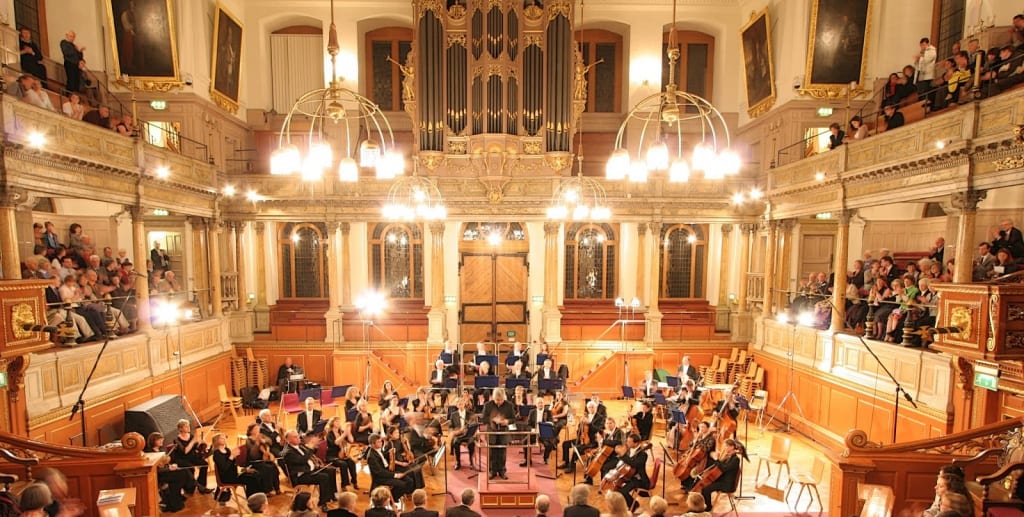This is the season of the year when I become increasingly reminded that going to some musical events can be just as dramatic as going to a good play and not entirely unlike that experience. I have recently been able to attend excellent performances of Bach’s St John Passion and Haendel’s Messiah, the latter in a fine rendering given by the Schola Cantorum of Oxford and the Oxford Philharmonic Orchestra, and they reminded me how close the experience of a fine musical reading can be to the emotional heft one experiences from a fine reading of a play by Shakespeare, Eugene O’Neill or Arthur Miller. But that perception is, of course, cheating in a way; because the music is related to strong texts that tell a dramatic story. The soloists in Messiah were excellent actors in singing their texts . Nicholas Mogg, the last minute replacement bass, was compelling and has a superb voice; Nick Pritchard also stood out in his Tenor arias. Elizabeth Atherton has one of those clean, clear, laser-like soprano voices; and Steven Grahl’s control as conductor gave the work pacing and strength. Another true glory of the evening was the Schola Cantorum, not just for their sound but for the clear articulation of the text and understanding of the dramatic feelings. It seemed as if one could almost stage a production of the work as Greek classic drama. Handel’s and Haydn’s oratorios and cantatas all aspire to drama and have even occasionally been staged.
But last night I attended a Brahms concert that felt almost as if I was at a drama even though there were no words sung, an event where the music somehow conveyed not only emotion but relationship and almost seemed to be about to burst into verbal articulacy. Again, the orchestra was the Oxford Philharmonic and this time the conductor was their music director, Marios Papadopoulos. The first half of the concert was devoted to the Brahms Concerto for Violin and Cello. The soloists were the seasoned Anne-Sophie Mutter on the violin and the young, up-and-coming Pablo Ferrandez on cello and it was their interaction, their body language, the way they made love to their instruments and seemed almost to be making love to each other, that gave the work truly dramatic intimacy and tension. It was a superb performance musically but conveyed a sense of truly theatrical work.
The music is dramatic of itself, but this performance excelled at suggesting that it was conceived as a dialogue not only between the soloists but also between the soloists and the orchestra. It reminded me also of the sequence in E M Forster’s novel Howard’s End where one of the characters imagines visual and dramatic events being told by the unfolding of a Beethoven Symphony. I felt that there was a subtext to the performance that I should be able to articulate for you; but in the end music is music, however dramatic; and even Strauss and Mahler became uncertain about having a text to explain their music. So I will not attempt an articulate explanation. I will just make a general statement that at its best, every piece of music is a mini-play to be experienced and reflected upon. And that this is not only true of lieder and cantatas and oratorios and operas, but also of Beethoven Symphonies and Tchaikovsky concertos and the dance music from Bernstein’s West Side Story. Listen out for the drama!
That music can be perceived as if it were a play, a drama, was just as true of Papadopoulos’s reading of the Brahms Symphony No 1, a searing work of, at times, almost unbearable tension; a symphony that seems to be telling a tragic, painful story until the final movement when the shift into C major acts as a kind of release of all the tension that has gone before and there is a final unleashing of energy and optimism not unlike the setting of Schiller’s Ode to Joy in Beethoven’s Ninth Symphony, a rush into relief about facing and positively gaining control of the vagaries of living and a wonderful, exciting and positive climax. This was drama and music making at the top of the game.
And it reminded me to suggest that if there isn’t a play around that you feel you want to see or that interests you, let me recommend that you check out what is going on in the concert halls near you. There is a whole world of drama in Monteverdi through Verdi or Mahler and onwards. The next concert at the Sheldonian in Oxford by the Oxford Philharmonic, for instance, will be on 26 April and will be led by the Russian conductor Yiuri Temirkanov. He has put together a programme of passionate Russian music that is as compelling a way of experiencing the Russian soul as attending a play by Chekhov or Pushkin. Among other things it includes a musical distillation of the one thousand and one nights by Rimsky-Korsakov. It is clearly going to be another dramatic evening.

